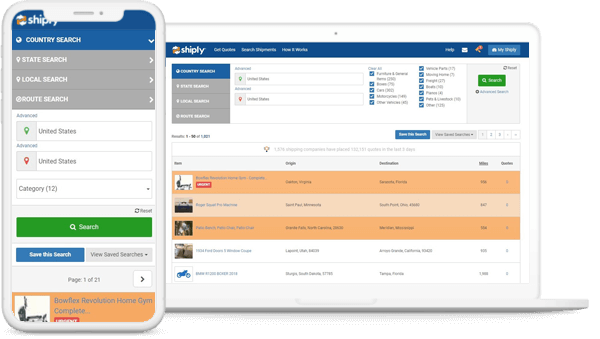Best B2B Marketplace Platforms For 2022
Most of the sales that happen within the IT market are derived from the B2B model. B2B or business to business is an industry that consists of a company that sells its services or products to various business entities. As such, they are referred to as the ‘white label’ suppliers who tend to offer products that do not have their brand name on it.
Their goods can range from all kinds of categories like technology, food, housing, fashion, etc. As a result, B2B eCommerce has been experiencing massive popularity over the past couple of years thanks to some of the best B2B eCommerce websites mentioned below that have been predicted to attract even more attention in the next couple of years.
Amazon
Let’s start with one of the most popular B2B sites, Amazon. Initially starting out as an online bookstore, it eventually began to start selling products from all kinds of categories. As such, Amazon has reigned over the eCommerce marketplace in the world, with the highest capitalization, which is over $1,315 billion in 2021 so far.
Amazon experienced a major influx of organic traffic during the COVID-19 pandemic when the world had been forced to conduct all of their activities at home. During the desperate quarantine days, many had turned to Amazon services to help them stock up on household items and basic necessities.
eWorldTrade
Another important platform that has significantly contributed to B2B eCommerce marketplace popularity is eWorldTrade. It has achieved many notable successes over the past couple of years and has continued to dominate over most B2B companies around the world.
Due to its constant remarkable performances, it has become one of the fastest-growing B2B marketplace and is further prospering through its massive global reach. It has brought competitive business experiences together, pushing both sellers and buyers to start engaging in healthy and productive business activities while looking towards providing the highest value that their businesses have to offer.
Shopify
Shopify has surpassed eBay and taken its place to become the second-largest eCommerce group right After Amazon by the United States market share.
Currently, it holds a market capitalization of 97.6 billion in just merchandise on a global scale. The pandemic has boosted the shift in our online shopping habits, and through Shopify, which is a company known for providing some of the ideal tools to other companies to set up their own online stores, has doubled its value since the beginning of 2020. There are more than thousands of brands that use their services and software to sell directly to their consumers and eliminate intermediaries like Amazon.
Alibaba
If you have been shopping online for a while now, no doubt you must have come across or even owned a product purchased from Alibaba.
This mega-company based in China that was founded back in 1999 ranks at second place in the list of the largest eCommerce companies on a global scale and had a valuation of about 601.8 billion. Although the company did face some drawbacks during the COVID-19 pandemic, the cloud computing and the mortar supermarket side of the business had helped it achieve 22% of its annual sales growth. Hence, it is one the most popular websites that has continued to grow over the years and is one of the largest companies in the world.
eBay
Founded by Pierre Omidyar back in 1995, eBay started out in the United States as an online auction house for people to sell used goods and collectibles to each other.
Currently, almost 80% of their items that are sold on the platform are new, and more than 85% of those items are sold at fixed prices. Although eBay did not maintain the same level of popularity as Amazon since they both started at the same time, it still holds a lot of value and plays a role in enhancing the popularity of eCommerce around the world.
Mercado Libre
Mercado Libre is the biggest payments and eCommerce company in Latin America that has a presence in more than 18 countries in its region. As a result, it has positioned itself in most of them and has a strong presence in Brazil, Mexico, Columbia, Argentina, and many more.
Founded back in 1999, this company already had more than 40 million downloads of its application in just 2019 alone. Currently, Mercado Libre has a market capitalization of 50 billion and has become the only company in the region that is within the Financial Times 100 companies that have significantly prospered during the course of the COVID-19 pandemic.
Meituan Dianping
Meituan Dianping is another Chinese company that has aspired to compete with Amazon. Its applications have connected consumers with local businesses to bring hotel reservations, food, and movie tickets, among many of their other services.
The company has always been focused on providing efficiency and finding new and innovative ways to make its delivery platform even more profitable. Additionally, the access data that came from this eCommerce is also an important asset that helps digitize local businesses and inform them on where they could expand while simultaneously finding gaps within the market for new stores and restaurants.
JD.com
JD.com is a company that operates just outside of Beijing and is the fourth largest in the world. Rivaled by Alibaba, it was established around the same time and had begun working virtually after six years.
Today, the company has unveiled its advanced technological delivery system, which consists of AI, robots, and a fleet of drones. When measuring its market capitalization, JD.com has $95 billion, which is significantly smaller than Alibaba. But, if we were to compare it with other companies when it comes to their level of performance in 2020, JD.com would easily take the lead.
A lot of its popularity boost came from the time when the China shutdown occurred in January, and JD.com was the only company that was reliably delivering packages during that time. The company had delivery vehicles that ranged from drones to three-wheelers that lingered on the city streets.







